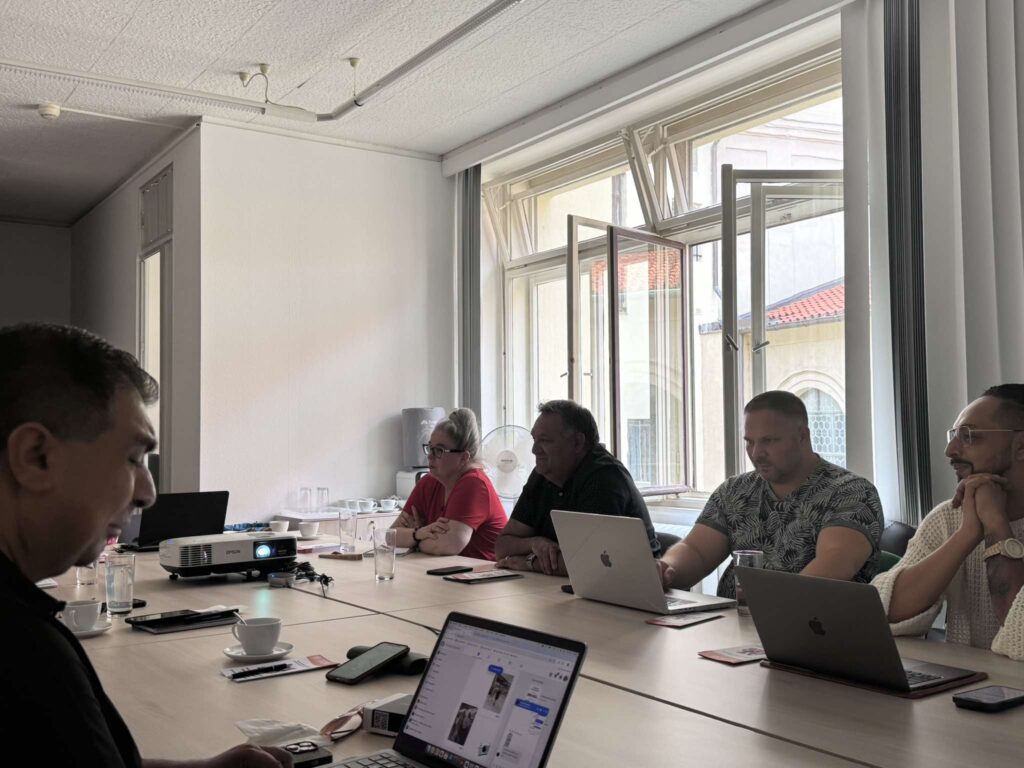ERGO Network Statement on the International Day for the Elimination of Racial Discrimination
For centuries, Roma communities across Europe have faced systemic discrimination, marginalisation, and racism. As we mark the International Day for the Elimination of Racial Discrimination on 21 March, we at ERGO Network reaffirm our commitment to fighting racism in all its forms and advancing justice and equality for Roma and all racialised communities in Europe. This year’s commemoration takes place in a particularly critical context, with far-right movements on the rise, civic space under attack, and racialised communities facing escalating discrimination, criminalisation, and exclusion.
Current challenges
Despite the European Union’s commitments under the EU Anti-Racism Action Plan (EU ARAP), systemic racism remains deeply entrenched across Member States. Roma communities continue to experience widespread antigypsyism, facing barriers in housing, education, employment, and healthcare. At the same time, anti-migrant policies and racialised policing disproportionately impact Black, Muslim, and other racialised communities, reinforcing a hierarchy of oppression that divides rather than unites our struggles.
In these challenging socio-political times, when major global powers compete against each other, racialised minorities often find themselves caught in the crossfire. Human rights issues and anti-racism efforts risk becoming political pawns rather than moral imperatives. This reality underscores why authentic solidarity across communities is not merely beneficial—it is essential.
As ERGO Network Advocacy Officer Isabela Mihalache put it: “I believe our fight for racial justice is not just for the benefit of any single group, but for the dignity and rights of all marginalised communities. Only through coming together, understanding our shared struggles, and working in solidarity can we pave the way for meaningful, lasting change. This is a collective journey towards a world where all racialised people can experience dignity, equality, and the freedom to live without fear or discrimination.”
ERGO Network’s engagement in anti-racism initiatives
This is why ERGO Network is actively engaged in the Anti-Racism and Diversity Week 2025 (ARDW25), a key civil society-led initiative coordinated by the European Network Against Racism (ENAR). ARDW25 is an opportunity to challenge the EU’s inadequate response to systemic racism and push for a bold, intersectional, and decolonial approach to racial justice.
The European elections of 2024 signalled growing political threats to racial justice, with increased securitisation, austerity, and restrictions on civic engagement. Civil society’s role in holding institutions accountable has never been more vital in this context. ARDW25 serves as a platform to demand a transformative EU Anti-Racism Strategy post-2025 that centres the voices of all racialised communities, addresses colonial legacies, treats all forms of racism equally, ensures synergies with specific equality policy frameworks, and establishes sound monitoring and evaluation mechanisms to ensure meaningful policy change, rather than mere performative commitments.
Challenges within civil society
The roundtable discussions highlighted a troubling trend of fragmentation among civil society organisations and advocacy groups. When we compete against each other for resources, visibility, or political favour, we inadvertently reinforce the systems we seek to dismantle.
“Whether it’s Palestine today, Congo tomorrow, or Roma communities the next day—we must lift each other, keeping each other not just in our thoughts but also firmly in our hands,” emphasised Isabela Mihalache.
From words to action
For Roma communities, solidarity cannot remain theoretical. We have experienced firsthand how isolation makes us vulnerable to rights violations and discrimination. Our approach must be practical and sustained:
- Create collaborative platforms that bring together diverse voices against racism
- Develop unified messaging that resonates across cultural and social boundaries
- Organise joint demonstrations that show the strength of our collective resolve
- Establish rapid response networks to react swiftly to discrimination incidents
- Build relationships daily, not just during designated events or observances
We recognise that vulnerability, when shared, becomes strength. Acknowledging our different but connected struggles creates a foundation for genuine solidarity.
On this International Day for the Elimination of Racial Discrimination, we call upon governments, international institutions, civil society organisations, and individuals to:
- Recognise antigypsyism as a specific form of racism affecting Roma communities across Europe
- Support intersectional approaches to combating racism that acknowledge multiple and overlapping forms of discrimination
- Fund grassroots initiatives that promote cross-community solidarity and cooperation
- Ensure that Roma voices lead conversations about their own experiences and solutions
By standing together—not just in our thoughts but in our actions—we can create a Europe where racial discrimination becomes a relic of the past rather than a daily reality for millions. According to Isabela: “It is a unique privilege to work together in this struggle, and we look forward to bringing more voices, more groups, and more perspectives into this vital conversation.”













